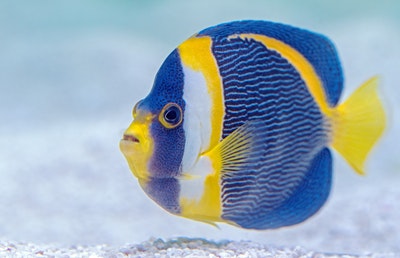Is it der, die or das Fisch?
How do you determine gender?
The gender of a noun indicates whether the article for a noun is her , die or das . Unfortunately, there are no simple rules for gender in German. The natural gender often does not help: For example, the word girl is neutral, even if the natural gender is clearly feminine: girls are female after all.
For most words you simply have to learn the gender.
However, there are a few rules and tips.
These words are mostly (but not always!) masculine:
Times of day, days of the week, months and seasons
points of the compass
weather phenomena
Alcoholic drinks
car brands
Words ending in -ig , -ich , -ling or -en
These words are mostly (but not always!) feminine:
fruit varieties
Names for ships, motorcycles, cigarettes or creams
Words ending in -in , -keit , -ung -heit , -shank or -ei
These words are mostly (but not always!) neutral:
Colours
Names for types of beer
Words with the suffixes -ment , -tum and -chen
Is it a or a fish ?
If you are talking about a person or thing for the first time, you probably do not use der , die or das , but prefer the indefinite article ein or eine . There are only two forms here: masculine and neuter nouns use the article a in the nominative case . If a noun is feminine, an is the correct article. So it's called a fish .
fish in the plural
The plural form of fish is fishes . With the plural, you don't need to know the gender of a word to find the right article. The definite article in the base form is always the , regardless of whether the noun is masculine, feminine or neuter. The indefinite form is also simple: There is no article here. For example, you would just say a lot of fish . Unfortunately, the plural form of a noun is not quite as simple as the article. There are some exceptions to the formation of the plural. Therefore, just like gender, it helps to memorize the plural form of vocabulary.

Comments
Post a Comment